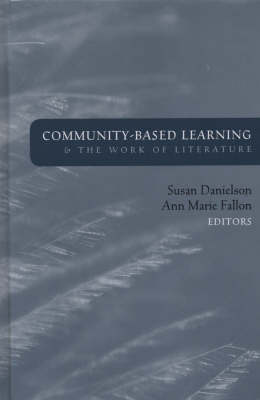JB-Anker
1 total work
Community Based Learning and the Work of Literature
Published 1 April 2007
Reading literature has often been described as transporting, but it has less often been considered as having an impact on real communities. Yet, reading literature can transform one's reading of the world and vice versa. In Community-Based Learning and the Work of Literature , the authors make the case for cultivating already-existing relationships between literature and public engagement. Written for faculty and staff in literature and humanities programs, this book provides innovative ways to incorporate community-based learning (CBL)-the attempt to link the work of university classrooms with communities at large-into literary studies. This book examines how community engagement re-imagines academic work in the humanities, proposing new approaches to scholarship and pedagogy in literary studies. The chapter contributors-all scholars of English, foreign language literature, and cultural studies-respond to three questions: How can literary theory inform CBL? How does community service transform our assumptions about literature and the literary aspects of everyday life?
In what ways do readings in cultural studies extend to the question of civitas, or the creation of a vibrant community life? Answering these questions, the contributors move literary studies beyond the lecture halls and toward the formation of learning communities that revise our conceptions of the human condition, construct an expanded and active sociological imagination, encourage compassion, and address issues of social justice. By linking literature and life through service-learning, the authors show how literary scholars can harness the power of their discipline to transform as well as inform.
In what ways do readings in cultural studies extend to the question of civitas, or the creation of a vibrant community life? Answering these questions, the contributors move literary studies beyond the lecture halls and toward the formation of learning communities that revise our conceptions of the human condition, construct an expanded and active sociological imagination, encourage compassion, and address issues of social justice. By linking literature and life through service-learning, the authors show how literary scholars can harness the power of their discipline to transform as well as inform.
